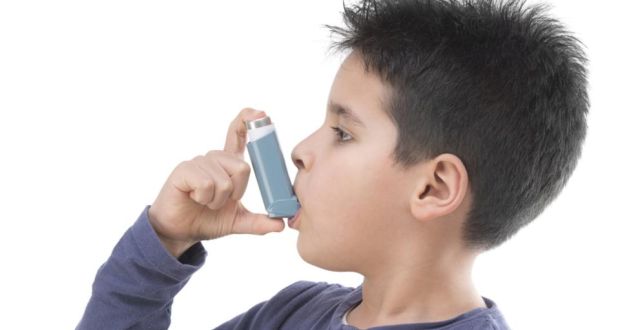NEW DELHI: Experts have called for educating parents regarding the common allergens which may act as trigger in asthmatic children and instructing them to observe and find out the specific precipitants in the individual child.
Childhood Asthma is one of the most difficult conditions to deal with, as guardians do not want their child to be labelled as ‘asthmatic,’ they said.
Air pollution has triggered medical emergency for asthmatic children and the Government’s decision for closing school is only one of the preventive measures taken towards this situation itself explains how the condition is worsening day by day.
Indian Academy of Paediatrics (IAP) has come out with a new manual named Asthma Training Module (ATM) to learn how not to be slave to the incapacitating medical condition, rather be its master.
The ATM is the flagship tool for disseminating the guidelines and has been one of the most popular and successful programmes of IAP and Respiratory chapter. The concept and idea of ATM was started in 2000 by the Respiratory chapter of IAP.
According to Dr Varinder Singh, President of Paediatric Respiratory Society,”It is the longest running (13 years old) locally developed training programme for the management of asthma among Indian children. As the training package is updated every few years in line with the available global evidence and other guidelines, it remains in demand even for re-training by the paediatricians.”
Banking on this ATM would come much handy in pre-empting any asthma emergencies.
Given the diagnostic dilemmas and confusing options in coping with Asthma, ATM promises to provide an effective tool to tackle it. Childhood asthma is one of the most common respiratory illnesses both in office practice as well as emergency department.
As per IAP, till now, nationally 8,000 and 1,000 Delhi-NCR doctors have been covered in the programme so far benefiting a number of parents. No treatment regime is likely to be effective unless it is followed properly, so patient education is central component in current asthma guidelines.
Dr Singh said all kids need a doctor-prescribed asthma action plan to control symptoms and flare-ups.
He said many kids with asthma have increasing inflammation in their airways from everyday trigger exposure ? they just can’t feel it. Their breathing may sound normal and wheeze-free when their airways are actually narrowing and becoming inflamed, putting them at risk for a flare-up.
”We can make the parents aware of the common allergens which may act as trigger in asthmatic children and instruct them to observe and find out the specific precipitants in the individual child. Parents/ guardians need to be involved in every step,” Dr Singh said.
(AGENCIES)


